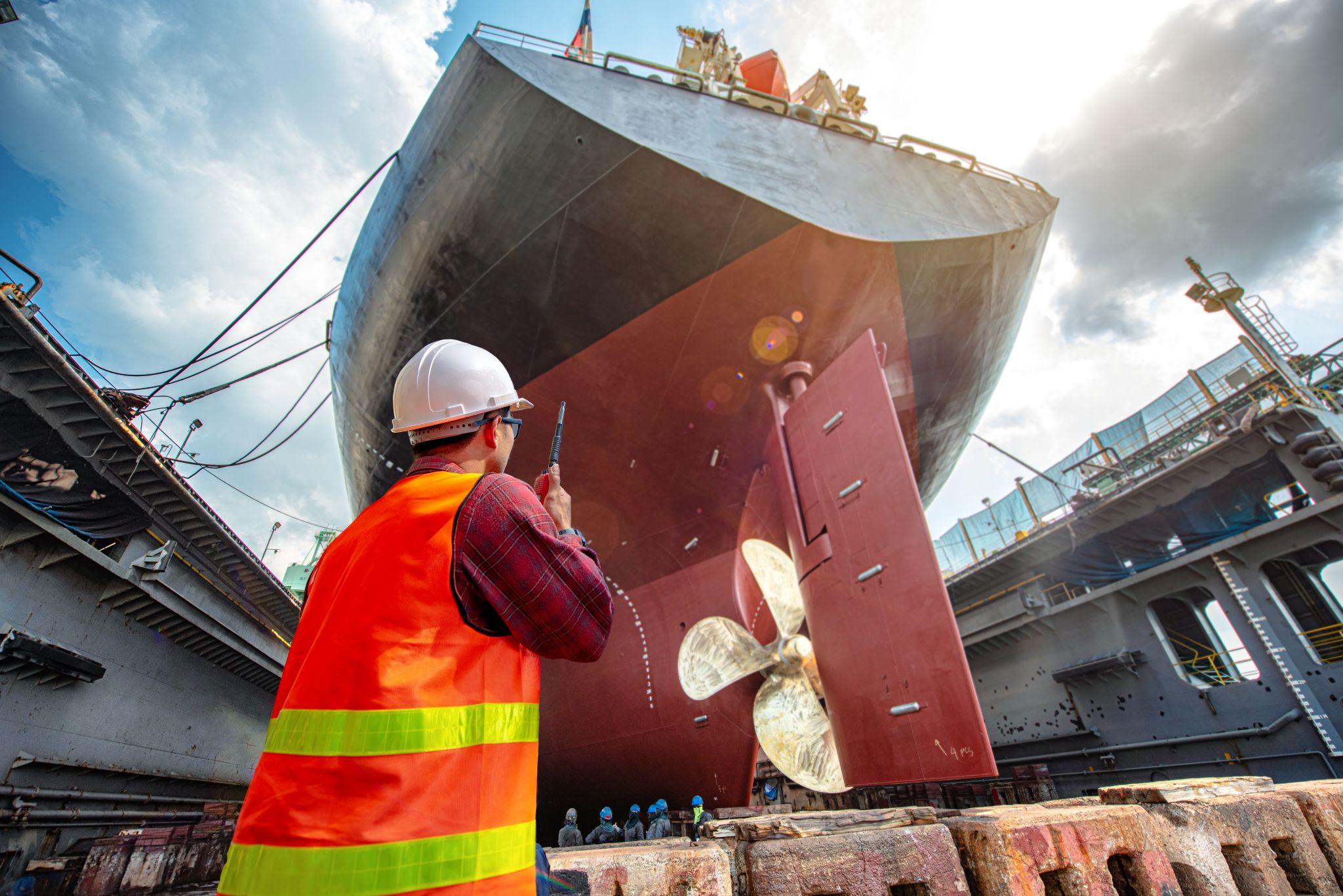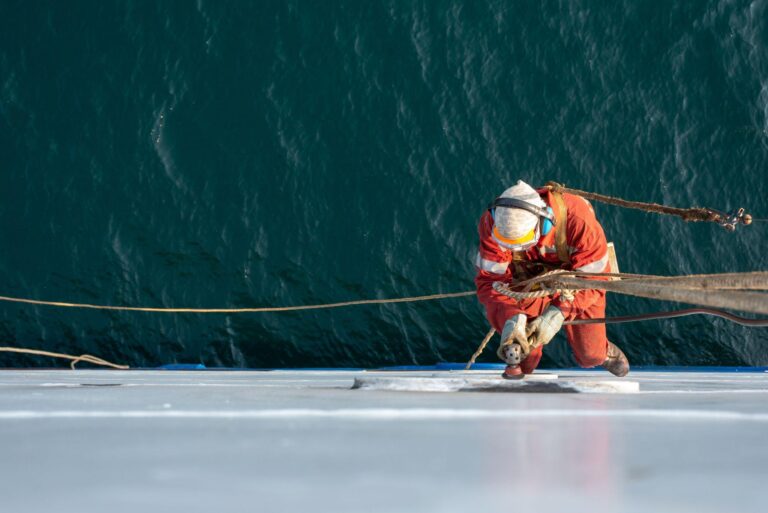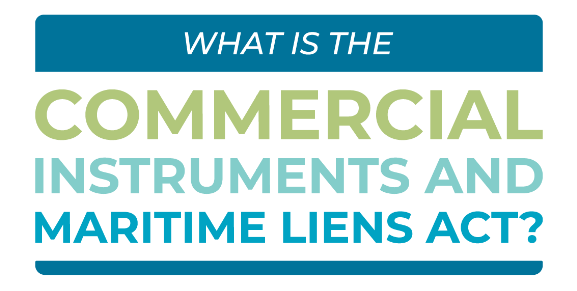If you work on the water—whether as a longshoreman, an oil rig engineer, or a cruise ship employee—you may run into a problem at some point. It could be a work-related injury or a legal dispute.
In this case, you may need a maritime lawyer. The laws that govern maritime commerce and other activities are complex, so it’s important to consult with an experienced maritime attorney for help.
One of the most common questions we get from maritime workers is whether maritime law applies to incidents that happen on land. While maritime law primarily governs events on the water, it can extend to certain land-based activities directly related to maritime work. Keep reading for more details.
What Is Maritime Law?
Also known as admiralty law, maritime law deals with legal issues related to the ocean, seas, and navigable bodies of water in the United States, such as navigable rivers and lakes used for interstate or international commerce.
The history of maritime law goes back many centuries, as seagoing peoples needed to be able to resolve disputes. Modern maritime law covers a broad range of issues—from how maritime businesses are allowed to operate to what responsibilities a shipowner has to its workers and passengers.
Does Maritime Law Apply on Land?
While maritime law primarily governs issues that occur at sea, it can also extend to certain land-based activities that are essential to maritime commerce.
Examples of land-based activities that may fall under maritime law include:
- Loading or unloading ships at a port or dock
- Shipbuilding and ship repair in shipyards or dry docks
- Working in commercial harbors or marine terminals
- Maritime-related construction projects (such as pier or dock building)
- Stevedoring and cargo handling operations
- Shore-based maintenance or support work tied to active vessels
One key example is the Longshore and Harbor Workers’ Compensation Act, which provides federal compensation protection for individuals who work in harbors, ports, and shipyards—even if their duties take place entirely on land.
Maritime law also governs marine insurance, which covers cargo loss, vessel damage, and related liabilities.
What Does Maritime Law Cover?
Maritime law is very broad, covering many issues and activities. It frequently addresses work-related injuries and deaths, but it also covers non-injury-related issues—from loan defaults and mortgage disputes to property lost at sea.
Here are a few of the most common issues addressed under maritime law in the United States:
Maintenance and Cure
Working with heavy machinery and equipment on a moving vessel comes with inherent risks and dangers. Even with the best safety measures in place, worker injuries are common.
Maintenance and cure provide relief to injured seamen. Maintenance provides workers with funds to survive on while they recover. Cure provides payment for reasonable medical expenses.
These benefits can apply even if the injury occurs on land—such as on a dock or while boarding—so long as the worker was in service of the vessel at the time.
Maintenance and cure benefits are paid out in addition to what a person can recover for negligence or unseaworthiness through Jones Act claims. Workers who are forced to sue their employer to collect maintenance and cure benefits may also be able to recover legal fees and, in some cases, punitive damages.
The Jones Act
This law provides remedies to seamen who are injured due to their employer’s or co-worker’s negligence.
Some examples of possible Jones Act claims include situations where an employer fails to provide a safe place to work or live, fails to provide adequate medical care, or fails to rescue or search for a seaman who falls overboard.
Note: Not all maritime workers qualify as “seamen” under the Jones Act; eligibility depends on their duties and their connection to a vessel in navigation.
Death On the High Seas Act (DOHSA)
When a seaman dies because of an employer’s negligence or because of an unseaworthy vessel, the worker’s family may file for benefits under the Death On the High Seas Act (DOHSA).
A DOHSA suit must be filed within three years from the date of the seaman’s death, and the death must have occurred more than three nautical miles from U.S. shores.
Longshore and Harbor Workers’ Compensation Act
The Longshore and Harbor Workers’ Compensation Act (LHWCA) provides federal compensation protection to harbor, port, and shipyard workers who are injured, regardless of who is at fault.
All employees of harbors, ports, shipyards, and similar environments are protected under this act—even clerical workers and janitors. An experienced maritime attorney can clarify whether your duties and injury fall under this federal law.
FAQs
What are the maritime laws?
Maritime laws, also known as admiralty laws, are a specialized set of federal laws that govern activities and disputes involving navigable waters. They cover everything from cargo transport and shipowner liability to injury claims and insurance issues in the maritime industry.
When does maritime law apply?
Maritime law applies when an incident occurs on navigable waters or involves maritime commerce. This includes accidents at sea, injuries aboard ships, or disputes involving cargo transport. However, it can also extend to certain land-based activities, like dock work or shipyard labor, when they are connected to maritime operations.
Can maritime law apply to activities on land?
This is a common question. Maritime law on land can apply in specific situations—especially when the incident or job involves loading or unloading ships, ship repair, or harbor operations. In those cases, laws like the Longshore and Harbor Workers’ Compensation Act may protect land-based maritime workers.
What’s the difference between maritime law and the law of the land?
Maritime law vs law of the land comes down to jurisdiction. Maritime law is a federal legal system that operates independently from state civil laws. It’s designed to govern water-based commerce and protect the unique interests of those who live and work at sea.
How does common law differ from maritime law?
Common law vs maritime law reflects the difference between traditional court-made law (common law) and the specific legal framework used for maritime cases. Maritime law often overrides common law in disputes involving maritime commerce, ships, or injuries at sea.
Who qualifies as a maritime worker?
A maritime worker is anyone engaged in a job that supports maritime commerce. This can include a longshoreman, a deckhand, or even a shipbuilder. If you work for maritime businesses or operations, you may fall under specific federal protections.
Can I be covered under maritime law as a maritime employee?
Yes. A maritime employee—whether offshore or land-based—may have legal protections under maritime laws, depending on your role and how closely it’s tied to maritime work.
Why Hire a Maritime Lawyer?
Maritime law is a highly specialized field. Only an experienced maritime lawyer has the knowledge and expertise required to ensure your case is handled properly. Whether you were injured on a cruise or lost a loved one who was working out at sea, you may have a maritime case. Find out your options by contacting Schechter, Shaffer & Harris at 800-836-5830.










